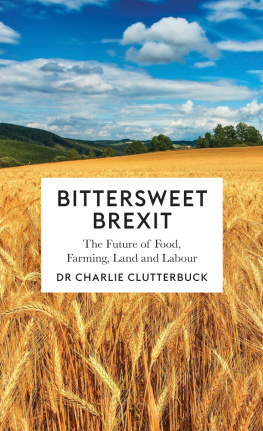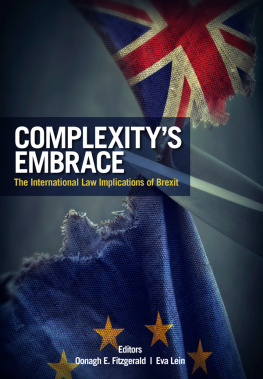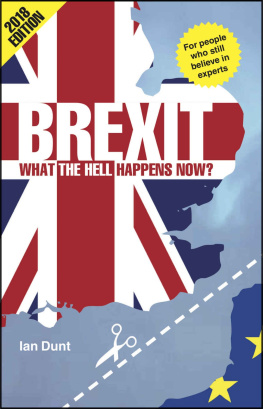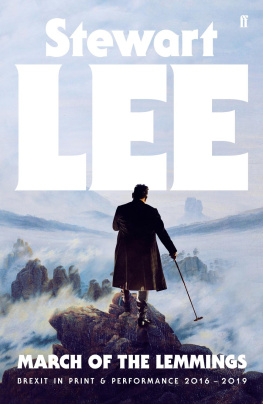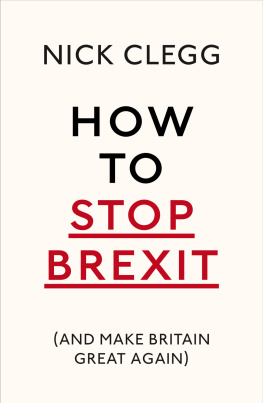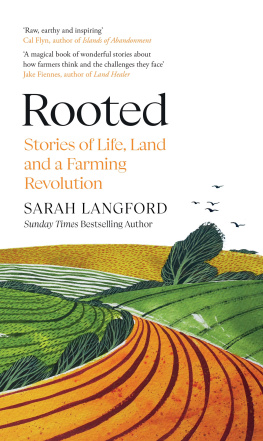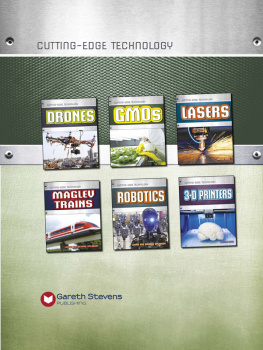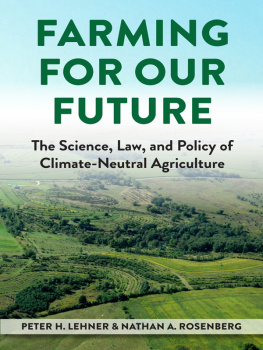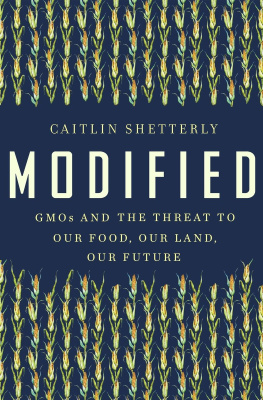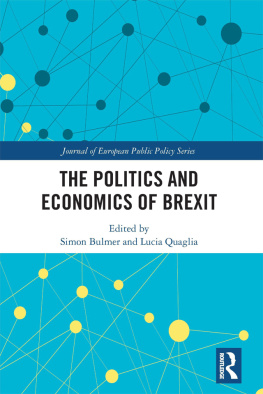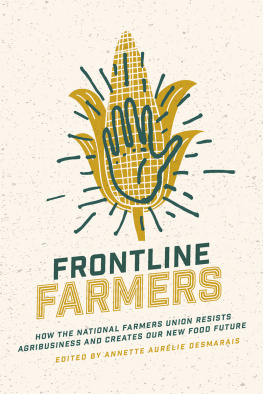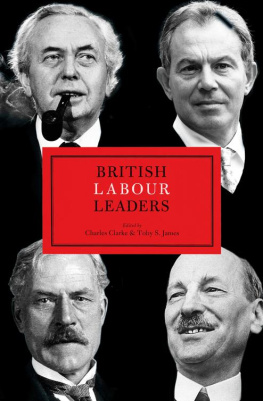Bittersweet Brexit
Bittersweet Brexit
The Future of Food, Farming,
Land and Labour
Charlie Clutterbuck PhD

First published 2017 by Pluto Press
345 Archway Road, London N6 5AA
www.plutobooks.com
Copyright Charlie Clutterbuck 2017
The right of Charlie Clutterbuck to be identified as the author of this work has been asserted by him in accordance with the Copyright, Designs and Patents Act 1988.
British Library Cataloguing in Publication Data
A catalogue record for this book is available from the British Library
ISBN 978 0 7453 3771 5 Hardback
ISBN 978 0 7453 3770 8 Paperback
ISBN 978 1 7868 0207 1 PDF eBook
ISBN 978 1 7868 0209 5 Kindle eBook
ISBN 978 1 7868 0208 8 EPUB eBook
This book is printed on paper suitable for recycling and made from fully managed and sustained forest sources. Logging, pulping and manufacturing processes are expected to conform to the environmental standards of the country of origin.
Typeset by Stanford DTP Services, Northampton, England
Simultaneously printed in the United Kingdom and United States of America
Contents
List of Photographs, Figures and Tables
PHOTOGRAPHS
FIGURES
TABLES
Foreword
When Charlie suggested I write the foreword to his book on food post Brexit, my immediate reaction was, why me? Im not an expert on any aspect of the food chain, have no qualification in nutrition or food science and possess only a laypersons knowledge of the politics of food and why we are where we are.
But I guess to some extent thats the point. Im a working mother with grave concerns about the future of my child and the children I will never ever meet.
Im a founder of a grassroots movement, Incredible Edible, whose purpose is to get people thinking of the world they live in and what they can do to build something kinder. If you eat youre in is our motto, and we use food to motivate people to challenge a status quo that isnt working for many people across the globe.
So of course Charlies book is important to people like me who have a stake in how our food is produced, where our food is produced and what impact all that has on the planet we call home.
Over the years Charlie and I have spoken many times of the idiocy of flying beans half way across the planet and the importance of creating sticky-money food economies where the profit stays where the moneys spent and you can see how its produced if you had a mind to.
Weve ranted at the idiocy of not using our schools to teach our children about the importance of living soils and respect for all life forms on which human beings depend for their existence.
For me, better use of our public realm and our markets to reconnect people to growing food and seasonality is the first step in rethinking what we want from the food sector and challenging the powers that be to create a system that invests in the wellbeing of all, not only those who can afford the artisan food we find in many upmarket supermarkets.
Im an optimist and I believe that an informed public can shift the patterns of their life if they are given alternatives that allow them to imagine a better, happier, healthier future for their families.
Thats why this book is so important, not just because it informs, but because it challenges us all to take the opportunity Brexit presents to rethink our food systems, rethink our investment in food production and reconnect, locally, with the opportunities to re-skill and re-plan land use, so we are not flying all those beans from one side of the world to the other.
Bring it on.
Pam Warhurst
Founder of Incredible Edible in Todmorden, Yorkshire, Incredible Edible Network If you eat, youre in

Photo 1 The then Mayor of Todmorden Jayne Booth listens in to Pam Warhurst at the opening of the Aquagarden in the small Yorkshire town.
Acknowledgements
Thanks go to Mark Metcalf for making this book happen, my wife Frances for helping and supporting me, Richard Hooper for the cartoons, Geoff Tansey and Anne Beech for editing, Nick Hayes for helping with the money tree, Steve Leniec for helpful comments, Incredible Edible in Todmorden for inspiration, Sustainable Food friends in the North West, Tim Lang for lots over many years, and Jenny Shepherd, Carol Marshall and Nancy Thompson for proofing and commenting, and thanks to Unite the Union, in particular Jim Mowatt, Director of Education, for backing this book.
Introduction
My book spells out the big changes to come. It draws on my over 40-year experience as an agricultural science worker and trade unionist. I trained as a scientist, gaining three agricultural degrees, including a doctorate from Wye College, then probably the best agricultural college in the world, but since closed down. I learnt about many agricultural science disciplines, from pests and diseases, biochemistry, pesticides, agronomy, horticulture, tropical crops, through to soil science and, in particular, soil zoology.
I also have experience in all parts of the food and farming chain; from working in kitchens and fields, plucking turkeys, picking hops, helping set up the first politics of food group, living on a farm, advising retailers about responsible food, building food ethics into online food supply chains, to setting up a module in a new food entrepreneurial degree on sustainable food.
I have been involved with the farmworkers union for over 40 years, first writing articles on pesticides for the National Union of Agricultural and Allied Workers in the 1970s, then representing them on the Health and Safety Executives (HSE) Chemicals in Agriculture (CHEMAG) Committee and then the Agricultural Industry Advisory Committee. I was the North West representative on the National Committee for Rural and Agricultural Sector of Unite, until it merged with the Food Sector of the union.
In , whatever deal is concluded, I discuss how we can still decide whether we are Going Global or Buying British.
4. Once we step outside the Customs Union, there are 2,000 agricultural products with tariffs that protect farms and food-producers in the EU. If we jump off the EU Tariff Cliff we suddenly face a double whammy e.g. there may be no tariffs blocking Australian lamb coming to the UK, but tariffs will block our lamb and other meat going into the EU. When we have sorted those out, there are 15,000 Processed Agricultural Products (PAPs) each with their own tariffs. When people say we can trade freely under WTO rules, they are kidding everybody.
Throughout the food system we need people to produce and serve the food we eat. In , I look at the conditions under which people labour. Here I make a unique proposal to change the way the 3bn plus EU CAP funds are distributed we should pay the money to workers on the land, not the owners of the land. At present, over 90 per cent of the EU CAP funds go to those owning more than 10 acres to do nothing. The more land they own, the more they get for doing nothing.
How we as a society treat land is crucial for our food and well-being and there is no level ploughing field. As I discuss in , the Countryside Survey, ten years ago, clearly pointed to poor soil management. There are significant losses of carbon from arable soils, and 2 million tonnes of soil lost through erosion each year. I have a particular interest as a soil zoologist and take you on a unique journey among the soil animals.
Next page
